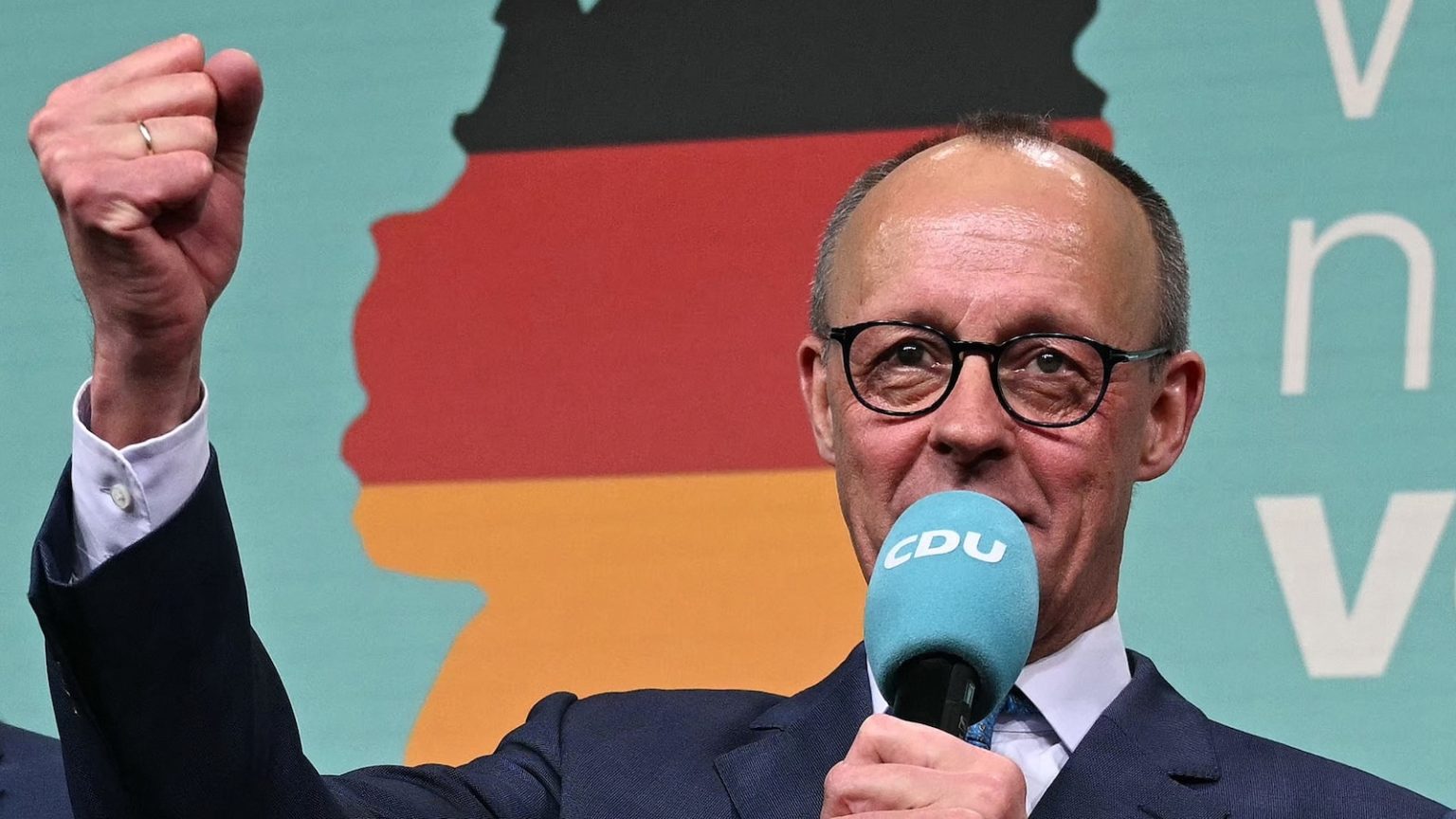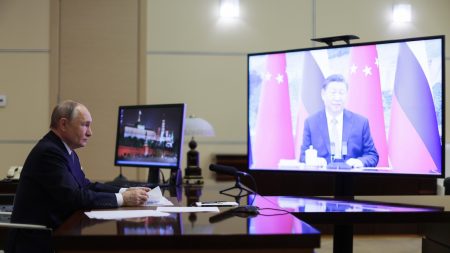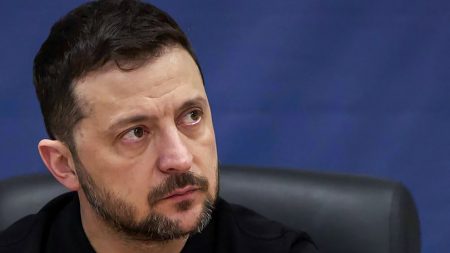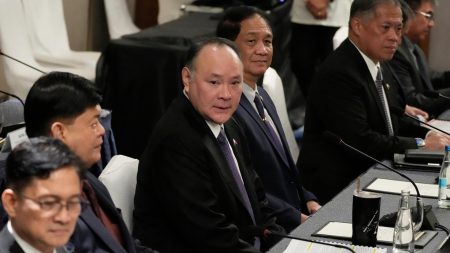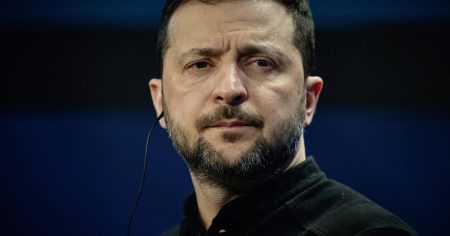A New Era in German Politics: Friedrich Merz and the Shift in U.S.-Germany Relations
The recent German elections have marked a significant turning point in the country’s political landscape, with Friedrich Merz, the leader of the center-right Christian Democratic Union (CDU), emerging as the largest party in the Bundestag with 28.6% of the vote. As Merz prepares to take the reins as the next chancellor, he has made it clear that his priority will be to redefine Germany’s relationship with the United States. In a poignancy-filled post-election debate, Merz addressed a growing concern that has been simmering beneath the surface of transatlantic relations: the reliability of the U.S. as a security partner for Europe.
Merz’s remarks came in response to recent statements by former President Donald Trump, who has been vocal about his intent to reassess U.S. commitments to Europe. “I never thought I would have to say something like this on a television program,” Merz admitted, reflecting the gravity of the moment. “But after Donald Trump’s statements last week, it’s clear that the Americans—at least this part of Americans, this administration—are largely indifferent to the fate of Europe.” Merz’s words underscore a broader sentiment among European leaders: the era of unconditional U.S. support for Europe may be coming to an end, and Europe must prepare to stand on its own two feet. “My absolute priority will be to strengthen Europe as quickly as possible so that, step by step, we can really achieve independence from the USA,” Merz declared, setting the tone for his tenure.
The Trump Administration’s Impact on Transatlantic Relations
Merz’s comments are not made in a vacuum. Over the years, the Trump administration has consistently called for U.S. allies to shoulder more of the burden when it comes to defense spending and security. “We’ve made it clear for years—decades, even—that it’s unacceptable that the United States and the U.S. taxpayer continue to bear the burden not only of the cost of the war in Ukraine but of the defense of Europe,” said Mike Waltz, Trump’s national security adviser. “We fully support our NATO Allies. We fully support the Article 5 commitment. But it’s time for our European allies to step up.”
These statements reflect a broader shift in U.S. foreign policy under Trump, who has been vocal about his belief that Europe has taken U.S. security guarantees for granted. Trump’s rhetoric has raised eyebrows—and concerns—across Europe, particularly as he has hinted at the possibility of pulling back U.S. military support. For European leaders like Merz, the message is clear: Europe can no longer assume that the U.S. will always have its back.
The Future of NATO and European Security
One of the most significant questions arising from Merz’s comments is the future of NATO. The military alliance has been the cornerstone of European security since the end of World War II, but Merz suggested that it may be time to consider a new security structure. “I’m very curious to see how we’re heading toward the NATO summit at the end of June,” he said. “Whether we’ll still be talking about NATO in its current form or whether we’ll have to establish an independent European defense capability much more quickly.”
Merz’s remarks are not the first time the idea of a more independent European defense capability has been floated. For years, European leaders have debated the need for greater autonomy in defense matters, particularly as the U.S. has increasingly signaled its desire to shift its focus to other regions, such as the Indo-Pacific. However, the idea has gained renewed urgency in light of Trump’s comments, which have left many wondering whether the U.S. is still committed to its role as Europe’s primary security provider.
The Rise of the Far Right in Germany
While Merz and the CDU celebrated their victory, the election also marked a significant milestone for another political force: the far-right Alternative for Germany (AfD). The party, which has been a thorn in the side of Germany’s mainstream political establishment, scored its strongest-ever result, more than doubling its support from the previous election. The AfD’s success was met with jubilation from its supporters, who see the party’s strong showing as a vindication of its populist, anti-immigrant platform.
The AfD’s rise has been a cause for concern among many in Germany and beyond, particularly given the party’s ties to far-right ideologies. However, the party’s co-chair, Alice Weidel, sought to downplay these concerns, framing the AfD’s success as a victory for democratic representation. “We’ve achieved a historic result,” Weidel told a cheering crowd. “We’ve become the second-strongest force as Alternative for Germany. And we’ve now firmly established ourselves as a people’s party.”
The AfD’s strong showing has also attracted attention from outside Germany. Among the party’s high-profile supporters is none other than Elon Musk, the billionaire CEO of Tesla and Twitter. In a social media post, Musk predicted that it was “only a matter of time” until the AfD wins an election, further fueling speculation about the party’s growing influence.
Implications for U.S.-Europe Relations
As Germany and Europe navigate this uncertain landscape, the implications for U.S.-Europe relations are profound. Merz’s promise to secure greater European independence from the U.S. reflects a broader recognition that Europe can no longer take American support for granted. At the same time, the rise of the AfD and other far-right parties in Europe adds a combustible element to the mix, as these parties often align themselves with Trump’s brand of populism.
In the short term, the most immediate challenge will be to navigate the transition in Germany’s leadership while maintaining stability in transatlantic relations. The upcoming NATO summit in June will be a critical moment for both Merz and his European counterparts to clarify their vision for Europe’s future. Will they opt to strengthen NATO, or will they pursue a more independent path? The answer to this question will have far-reaching consequences, not just for Europe’s security but also for the broader U.S.-Europe partnership.
Looking Ahead: A Changing World Order
As the dust settles on Germany’s election, one thing is clear: the world is entering a new era of geopolitical uncertainty. The U.S. is increasingly focused on its strategic competition with China, while Europe is grappling with the challenges of energy insecurity, economic stagnation, and migration. In this context, the relationship between the U.S. and Europe is more critical than ever.
For Merz and other European leaders, the task ahead will be to navigate this complex landscape while building a more resilient and self-reliant Europe. It’s a tall order, but one that is necessary if Europe is to thrive in a world where the old certainties can no longer be taken for granted. As Merz himself acknowledged, the road ahead will be fraught with challenges, but it’s also an opportunity for Europe to forge a new path—one that reflects its values, strengthens its unity, and secures its place on the world stage for generations to come.





